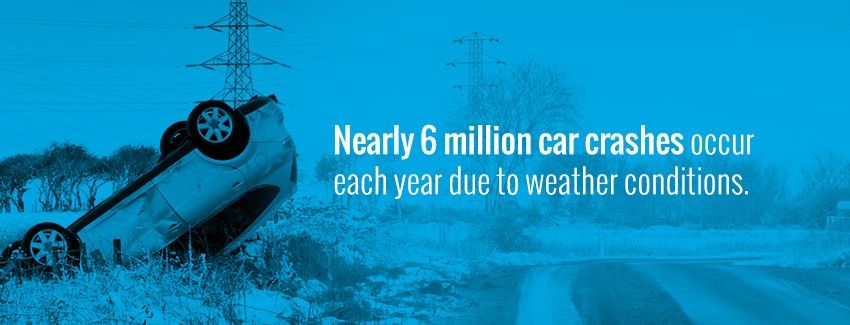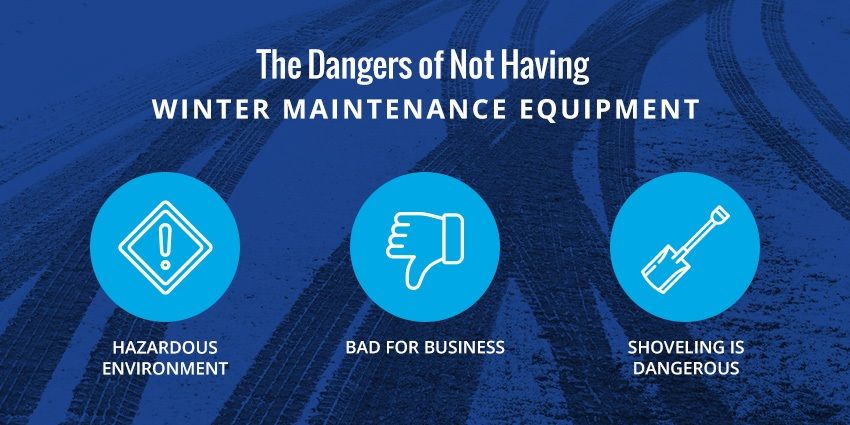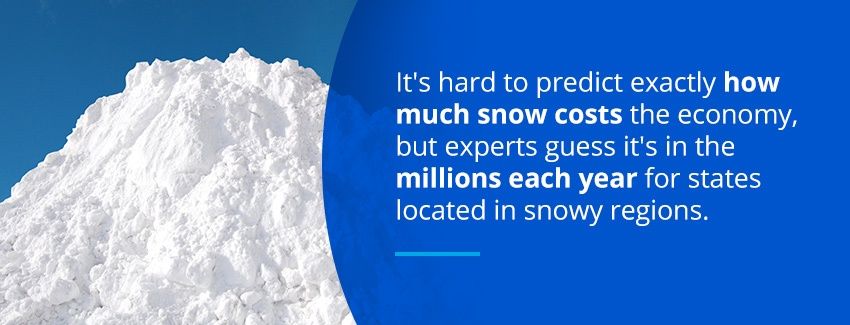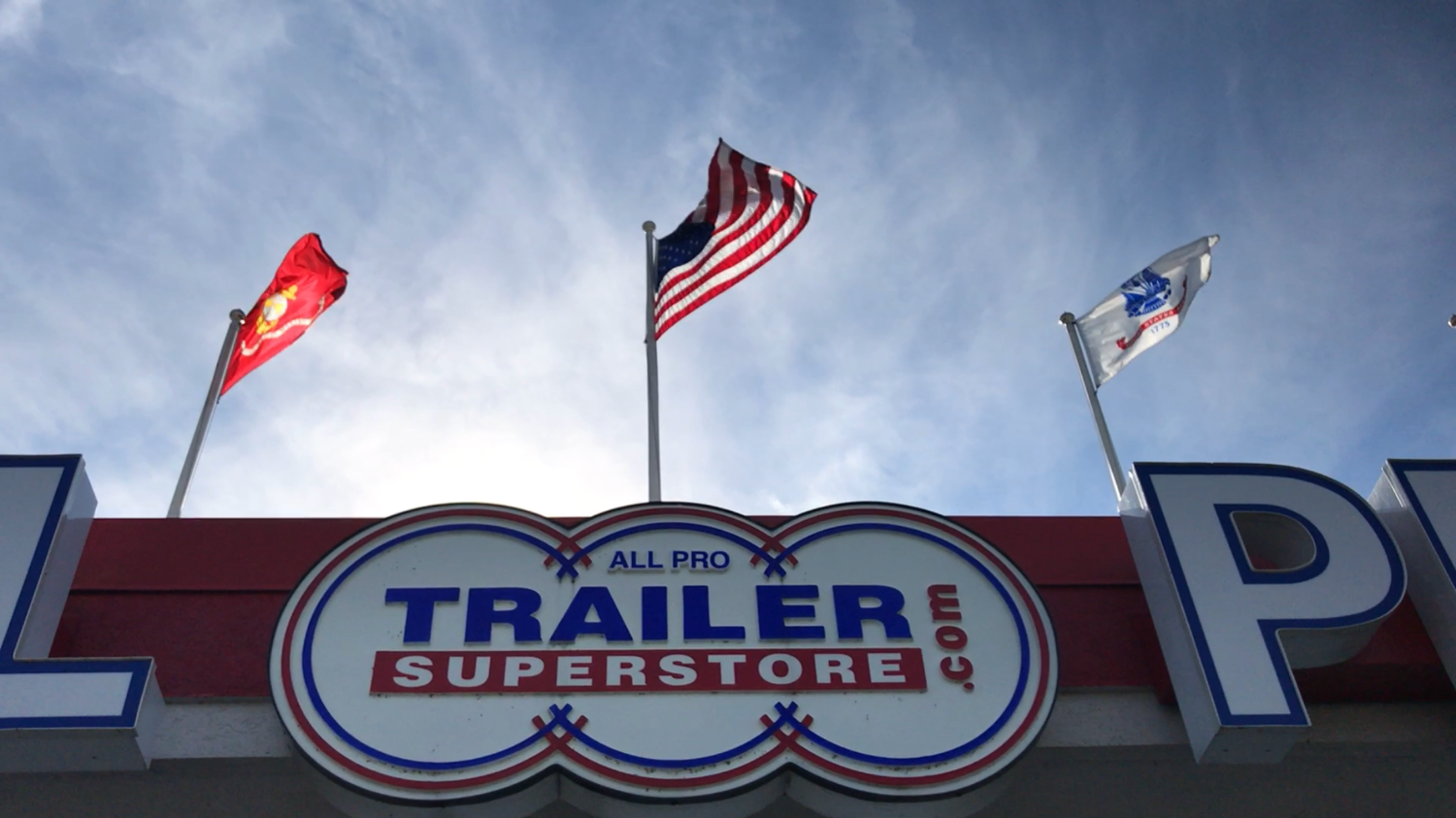Winter Weather Road Affects | All Pro Trailer Superstore
Feb 24, 2020Last Updated on September 30, 2024 by Eric Miller
Last Updated on September 30, 2024 by allprotrailersuperstore
Can you remember snowball fights or celebrating snow days? While winter may be a fun season for kids, it’s often a frustrating time of year for adults or anyone who has to travel regularly. Drivers know how dangerous and time consuming it can be to traverse snowy or icy roads. Thankfully, snow plows and salt spreaders make it possible to get where you need to go despite the
weather forecast.
Table of Contents
- How Winter Weather Affects Road Conditions
- How Snow Plows and Spreaders Improve Road Conditions
- What You’ll Learn in This Guide
- The Importance of Winter Maintenance Equipment
- What Is Winter Maintenance Equipment?
- How Does Winter Weather Affect Businesses?
- The Dangers of Not Having Winter Maintenance Equipment
- Why Owning Equipment Is Better Than Renting
How Winter Weather Affects Road Conditions
Winter weather, which includes snow, ice, freezing rain and drifting snow, can make roads slippery, dangerous and challenging to travel over. Sometimes, layers of ice hide beneath slush or snow and may cause drivers to lose control of their vehicle when they least expect it. Both freezing rain and snow may also impair visibility. Overall, winter weather conditions increase crash
risk and slow traffic.
According to the Department of Transportation (DOT), nearly 6 million car crashes occur each year due to weather conditions. About 18% of weather related accidents occur when it’s snowing or sleeting, and 13% happen on icy pavement. Snow and ice lead to millions of hours of delay each year, costing trucking companies billions of dollars annually. If you own a business in a snowy region, you likely know what it’s like to have employees call off due to road conditions. You can greatly improve access to your business with the help of winter maintenance equipment.
How Snow Plows and Spreaders Improve Road Conditions
Snow plows and salt spreaders make an effective team when it comes to battling snow. Snow plows remove snow buildup from roads while spreaders coat road surfaces with salt. Salt keeps ice from bonding with the pavement and makes it easier to plow road surfaces. You need both types of equipment for optimum snow and ice removal.
What You’ll Learn in This Guide
Snow plows and salt spreaders help keep roads and parking lots safe. Business owners can protect customers and continue operations with the help of snow removal equipment. Homeowners, especially those who live in rural areas, can use personal plows and spreaders to prevent themselves from being snowed in.
If you’re interested in buying a snow plow and spreader to prepare for winter, you probably have some questions. In this guide, we’ll show you how to make a wise investment. We’ll cover topics such as:
- How to buy a snow plow
- How winter weather impacts businesses
- How snow plows and spreaders work
- Plow and spreader maintenance tips
- How to store equipment out of season
Without snow plows and salt spreaders, businesses would shut down, homeowners would be trapped inside, and roads would be impossible to use. Thanks to snow removal equipment, life goes on, even when a polar vortex doesn’t want to give up.
At All Pro Trailer Superstore, we supply the best names in snow plows and salt spreaders. Whether you’re searching for a dependable salt spreader for sale or a heavy-duty snow plow, we are your go-to source for winter maintenance equipment.
The Importance of Winter Maintenance Equipment
For many Americans, snow and ice is part of their reality come wintertime. According to the DOT, over 70% of roads in the United States are located within snowy regions. A Pennsylvanian might see anywhere from 8 to 100 inches of snow each year, for example, depending on where they live within the state. In central Pennsylvania, the average annual snowfall ranges from about 31 inches to 46 inches a year. This doesn’t mean Pennsylvania residents need to hibernate for winter. Snow removal equipment lessens the impact of extreme weather events on businesses and helps keep residents safe.
In this chapter, we’ll explore the importance of commercial snow removal equipment and how weather affects the economy. If you have more questions about professional snow removal equipment or would like to know your options as a homeowner, contact us at Trailer Superstore, where we’re ready to help.
What Is Winter Maintenance Equipment?
Winter maintenance equipment refers to a range of tools used before, during and after a snowstorm to keep snow and ice from accumulating. You may have heard the terms de-icing, which refers to the removal of snow and ice, and anti-icing, which is the practice of treating roadways with chemicals before a storm to make it easier to plow.
Both de-icing and anti-icing make up a winter maintenance strategy and require the use of specialized equipment, such as:
- Plows
- Salt spreaders
- Liquid spreaders
- Wheel loaders
- Snow blowers
- Motor graders
- Trucks
Heavy-duty vehicles like trucks, loaders and motor graders can be fitted with plows to remove snow from streets, parking lots and other areas. Salt spreaders can be mounted to vehicles to scatter salt or sand on roads.
Winter maintenance teams also use support equipment to achieve their goals. Support equipment refers to:
- Salt, sand or other spreading materials
- Salt bins
- Transport trailers
- Accessories such as plow guards or lights
Equipment owners must consider how they’ll transport winter maintenance tools to and from snow removal sites, and they also need to make sure they have adequate storage space for their machinery.
How Does Winter Weather Affect Businesses?
Winter weather makes a big impact on the economy because it affects business operations and influences consumer behavior.
It’s hard to predict exactly how much snow costs the economy, but experts guess it’s in the millions each year for states located in snowy regions. Here are a few reasons why businesses take a hit during a winter storm:
- Employees call off: Employees may not be able to report to work during a snowstorm, which slows production and increases lost revenue. Employers must also find ways to replace employees who can’t make it in, which may mean paying other workers overtime. According to the Centers for Disease Control and Prevention (CDC), lost productivity linked to absenteeism costs employers over $225 billion a year in the United States. Simply said, when employees call off, businesses lose money.
- Customers stay home: Customer activity declines because people are not willing to drive during winter weather events. While grocery stores might see a boost in customer activity right before a storm, other types of businesses, such as restaurants, can expect a drop in sales.
- Businesses close: If there’s no way for employees to make it to work, a business may have to close its doors during a storm. When a business closes, it loses money because it can’t make any sales or produce goods. It may also lose customers to competitors. For some companies, just a single day of shutting down leads to substantial loss. According to a Boston Herald article, retailers lost roughly $10 million every day they closed or stayed open but had little business during a snowstorm. IHS Global Insight claims that a major snowstorm costs businesses and
government agencies between $300 and $700 million with only a single day shutdown. - Businesses face legal risks: Icy parking lots and sidewalks put businesses at risk of personal injury lawsuits. No matter the size, no company is immune to a lawsuit. With a lawsuit comes the cost of hiring lawyers, settling the case and repairing a damaged reputation. It’s best to prevent a lawsuit from happening in the first place.
- Inventory suffers: Suppliers may not be able to deliver inventory during or after a snowstorm, which means businesses may not be able to stay on schedule or meet their customers’ needs. A winter storm could also damage inventory, depending on the type. For example, if you own a restaurant and have to close during a storm due to a power outage, you won’t be able to sell perishable items to customers once you reopen.
The good news is companies can prepare for winter weather and reduce its impact. Even if snow or ice keeps customers and employees home for a day, the right tools can get you back on track faster and with much less effort. Competitors who can’t handle the snow won’t be able to keep up with your business.
The Dangers of Not Having Winter Maintenance Equipment
There are some items business owners can skip and still keep customers and employees happy. For example, a grocery store doesn’t need an indoor pool to attract and retain customers. Other items, like pieces of snow removal equipment, are must-haves for businesses and some homeowners in snowy regions.
Not owning winter maintenance equipment is too great a risk to take, and here are the reasons why:
- It’s hazardous: Icy or snowy surfaces can lead to injured employees or customers. Businesses could face a lawsuit if someone slips and injures themselves because the company neglected to maintain its property. According to the Bureau of Labor Statistics, thousands of workers were injured in falls involving ice, sleet or snow in states such as New York, Pennsylvania and Michigan in 2014. Likewise, homeowners need a way to get out of their homes quickly and safely in an emergency. It’s just not worth it to not be prepared. Fortunately, you have many options to help you keep parking areas and sidewalks free of snow.
- Shoveling is dangerous and time-consuming: Removing snow with a shovel can be dangerous. According to the National Safety Council, shoveling snow causes thousands of injuries a year and as many as 100 deaths. Without the right equipment, it can take hours to remove snow from a driveway, sidewalk and parking lot. Plows, on the other hand, remove snow quickly and efficiently. Plow operators are less likely to overexert themselves and more likely to produce clear, safe surfaces in less time than someone who shovels.
- It’s bad for business: Not owning winter maintenance equipment is also costly in a business sense. If people can’t safely walk to a business or find somewhere to park, they are more likely to go to a competitor. Keeping your property well-maintained all year long shows you care about your customers, and you’re proud of your company.
Why Owning Equipment Is Better Than Renting
It’s important to own winter maintenance equipment rather than rent so that you’re always prepared for the next big storm. Purchasing snow removal equipment is an investment that has several advantages, such as:
- It’s more affordable in the long run: If you live somewhere that promises snow or ice every winter, it usually doesn’t make sense to spend money renting equipment when you can own machinery you’ll use every year. When you own snow removal equipment, you also don’t have to hire someone to clear your property or pay extra for a fast response.
- You can always sell equipment: You can’t get your money back when you rent equipment, but you can sell what you own. If you ever decide to head south and no longer need your snow plow or salt spreader, you may be able to sell these items and get a return on your investment.
- You can upgrade equipment whenever you want: When you own snow removal equipment, you can add accessories or change pieces to suit your requirements whenever you want. You’ll enjoy greater flexibility with the type of snow removal work you can do, and you can always be prepared.
- You can use the equipment whenever you need to: Perhaps the greatest reason to own equipment rather than rent is to always have it on hand. That way, you can be ready for unpredictable winter weather,and you won’t have to scramble to find help.
If you’re eager to shop for plows, spreaders or trailers to haul your winter equipment, browse our inventory at Trailer Superstore and prepare for a productive winter.





